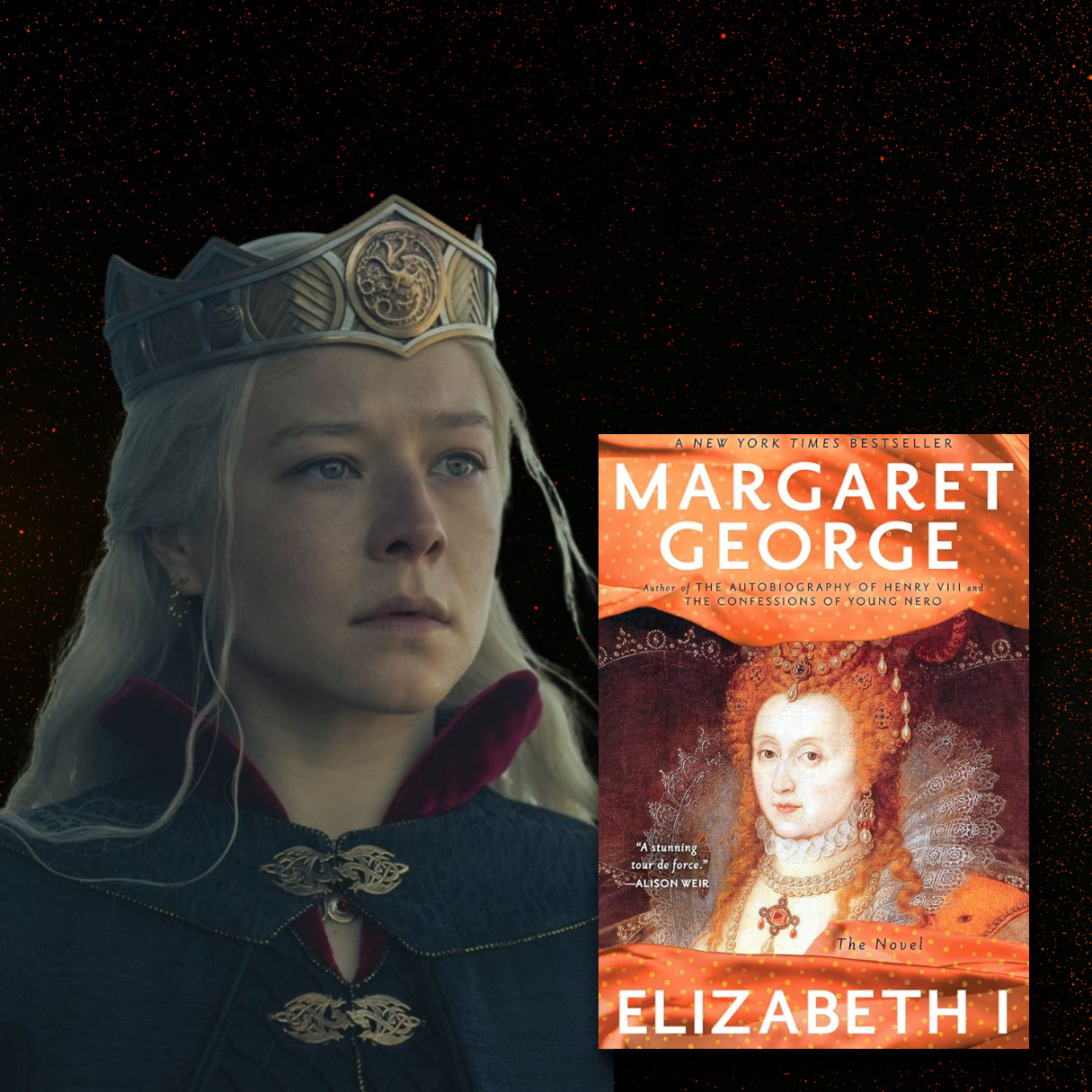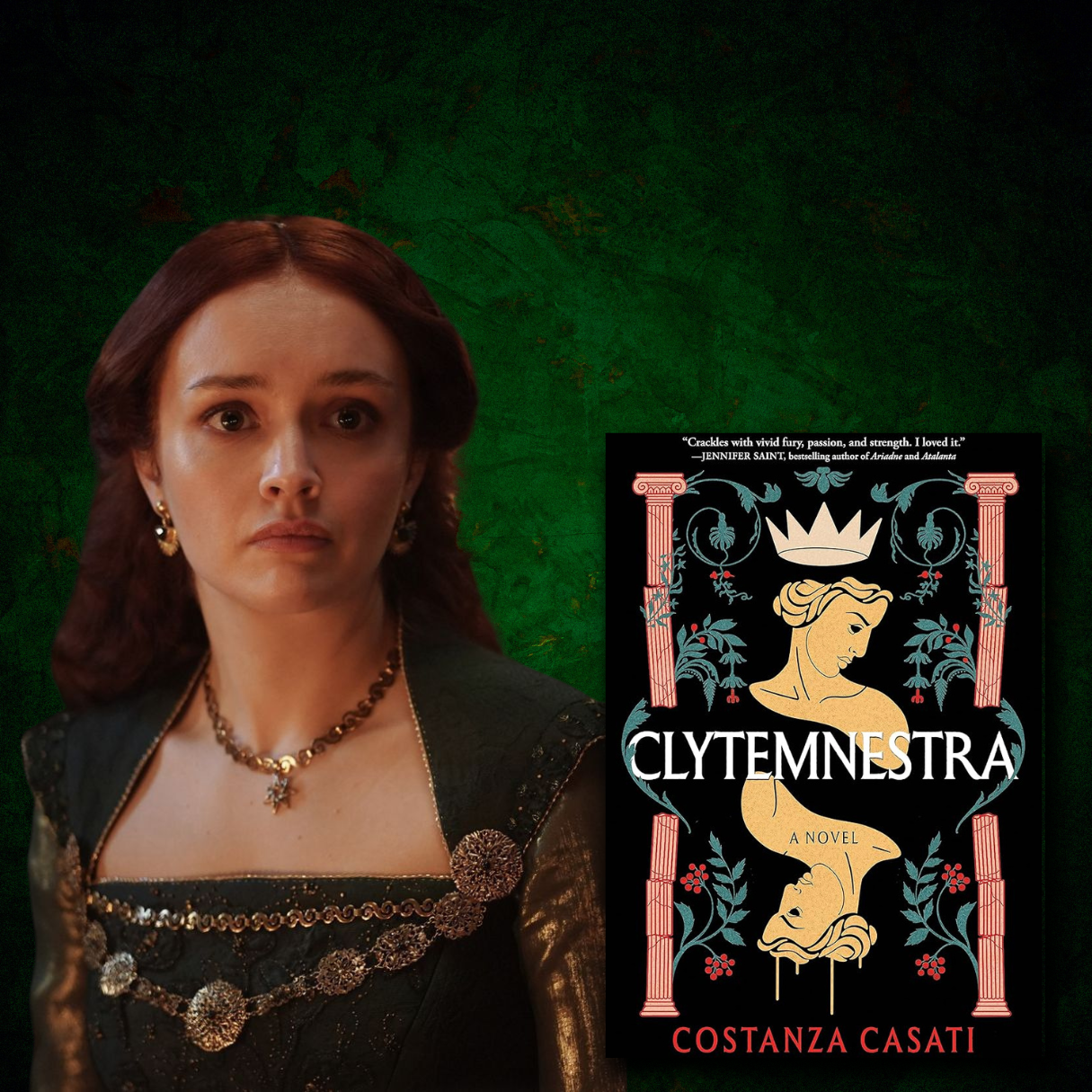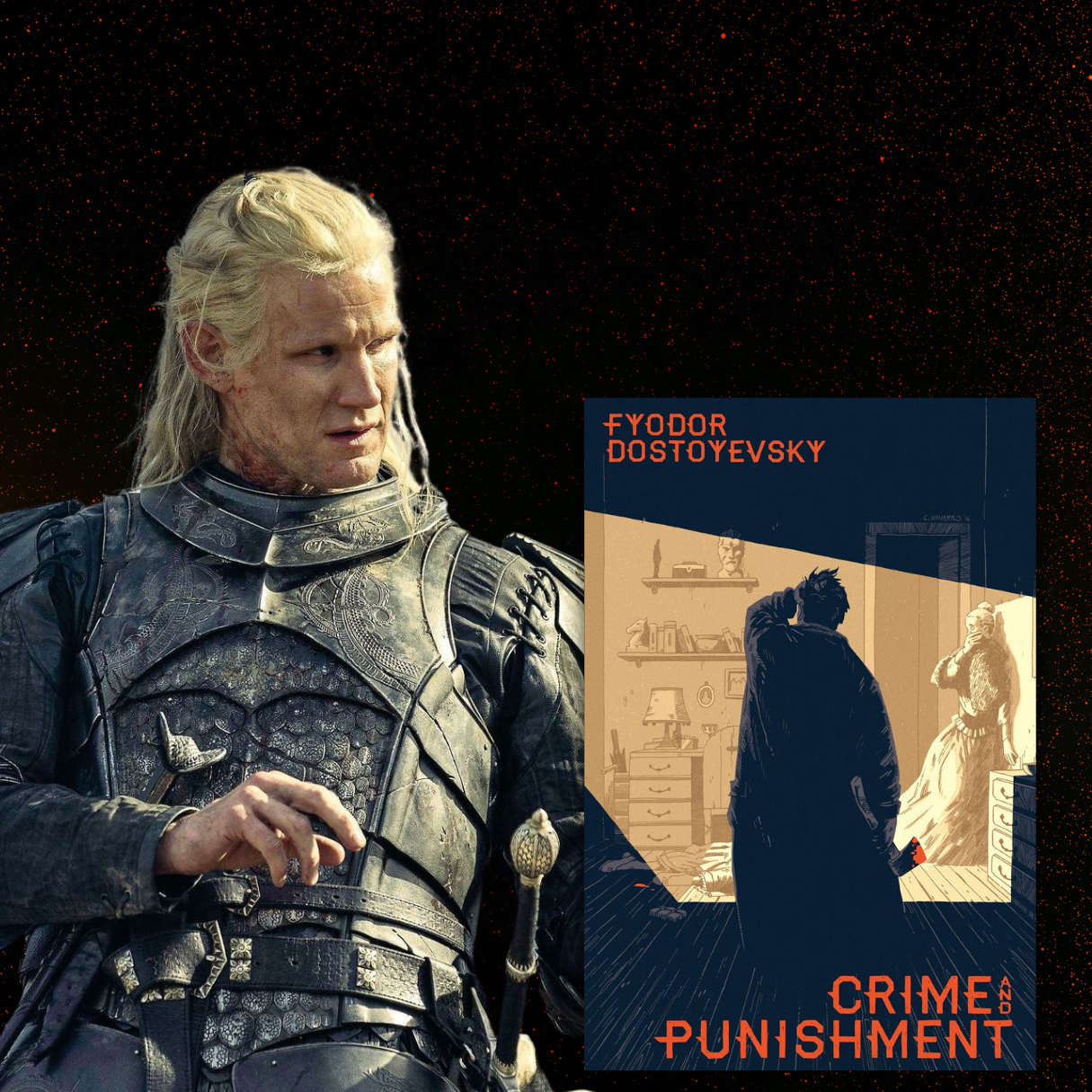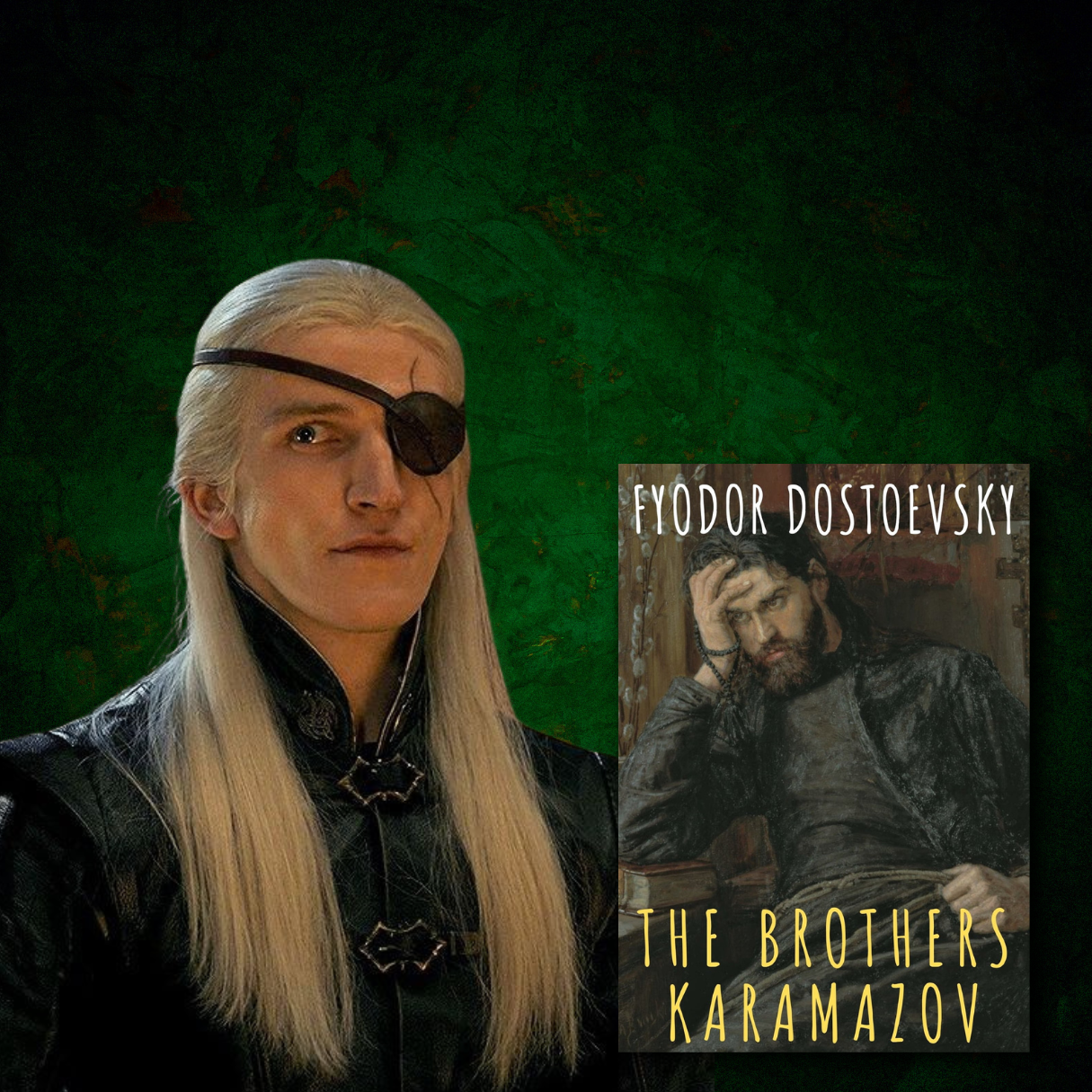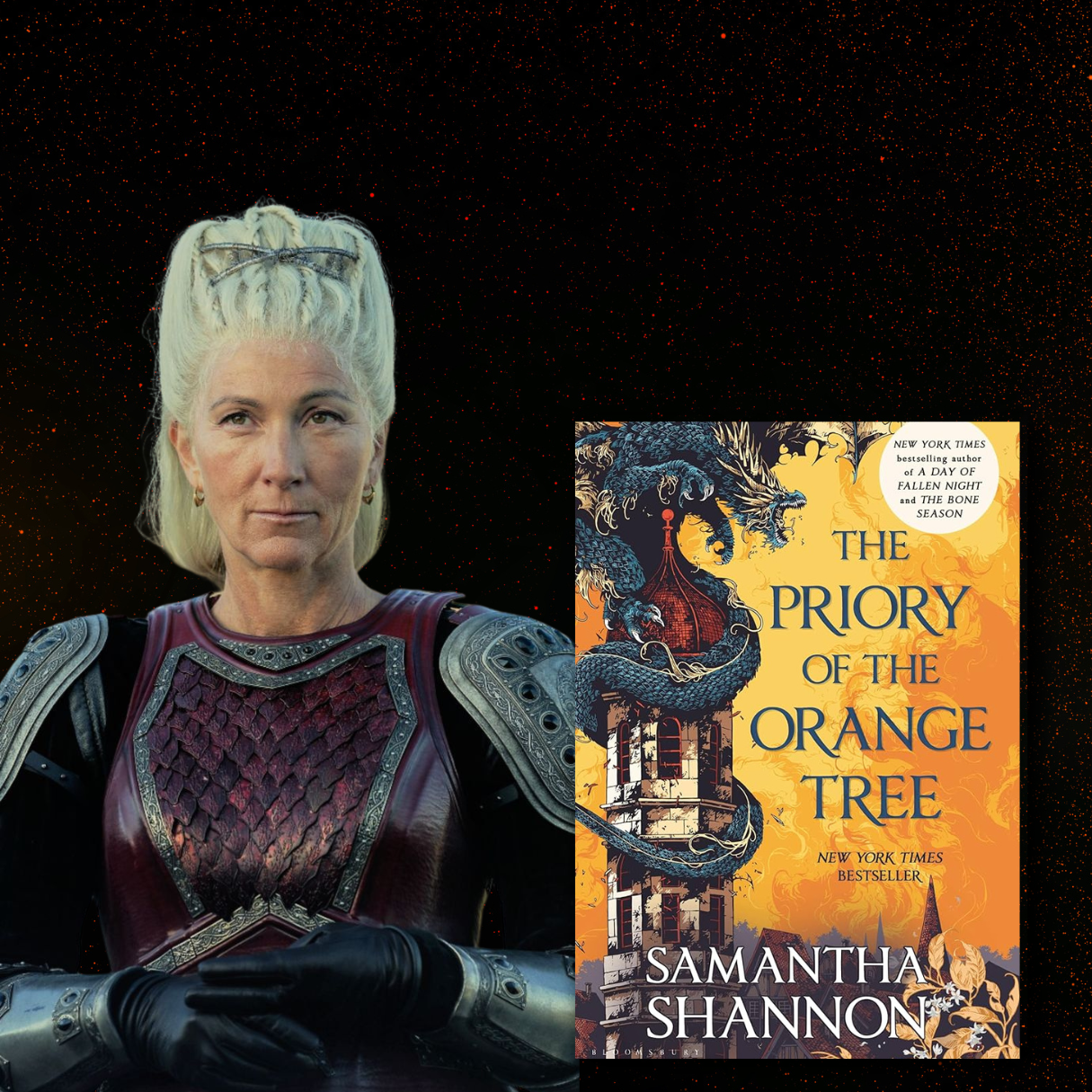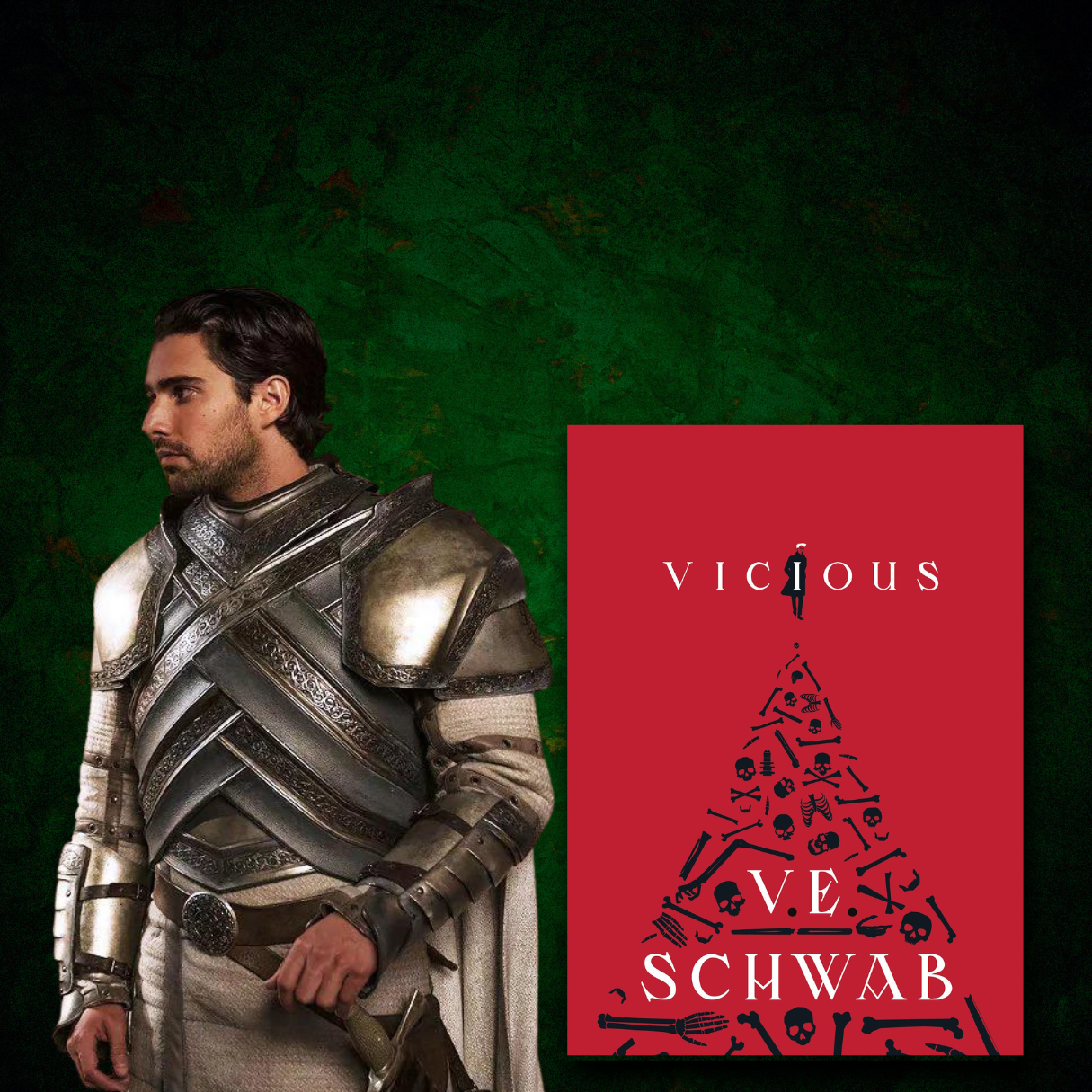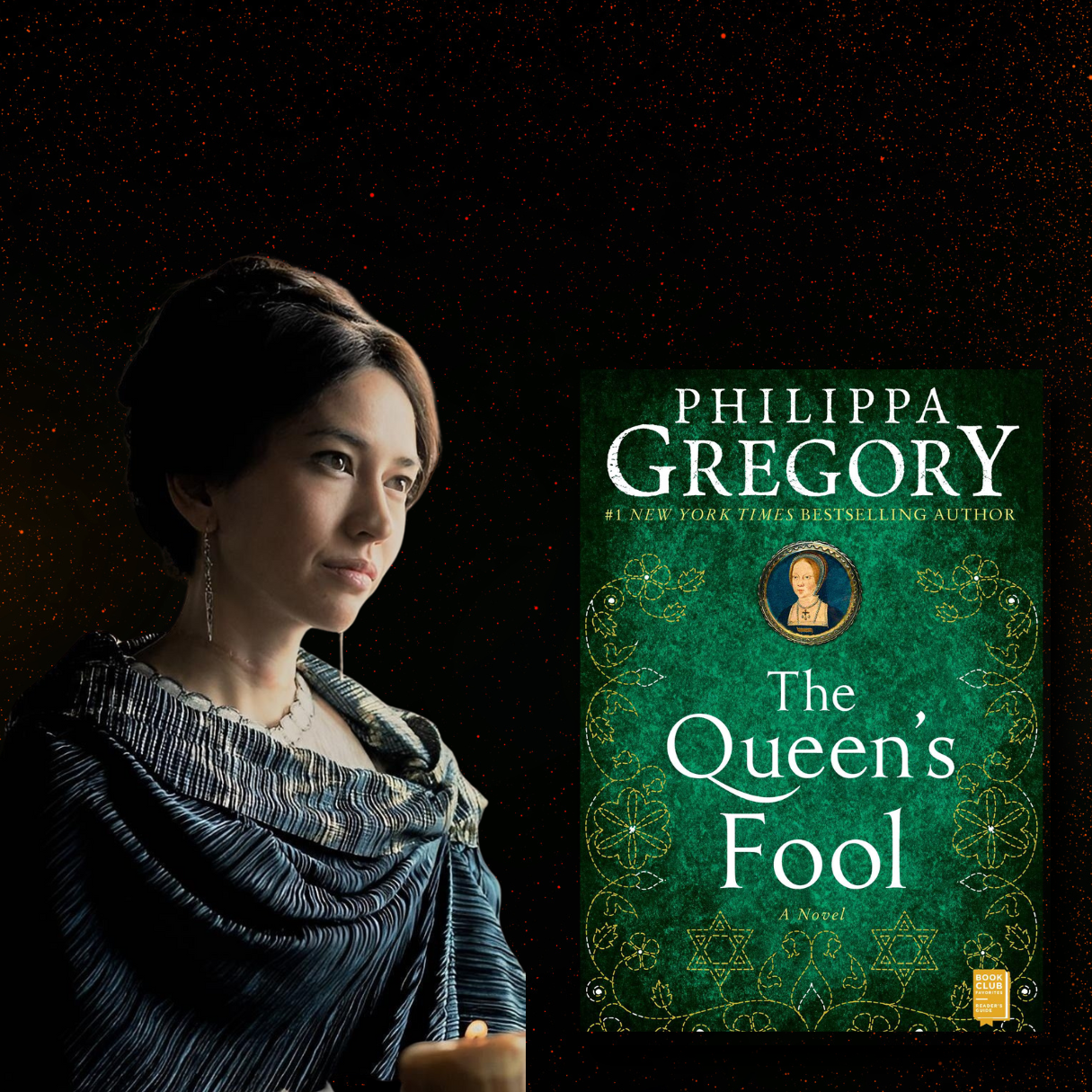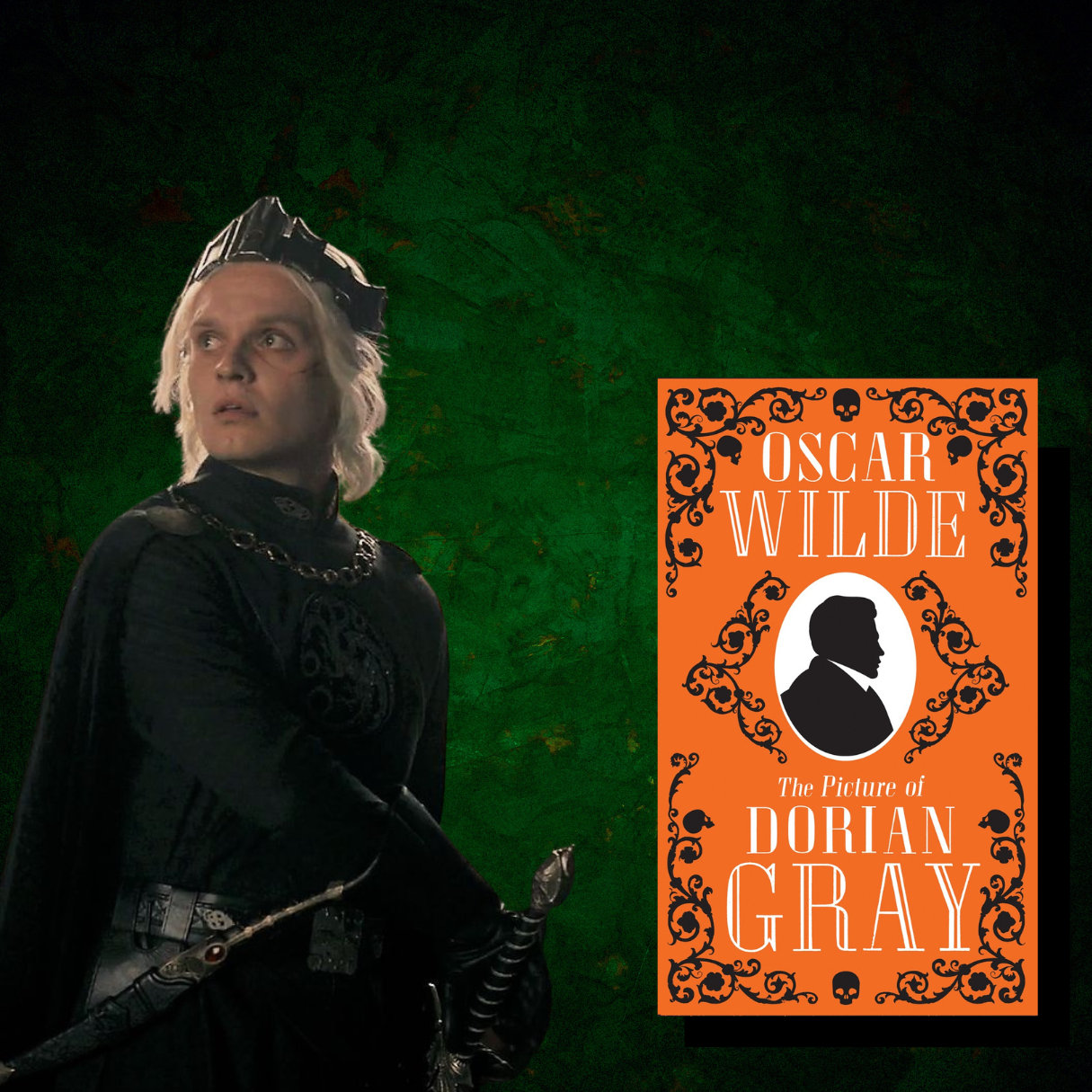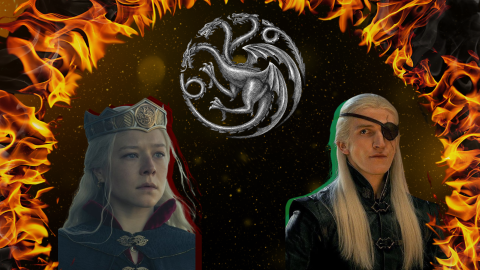
By Victoria Love, Development Manager
August 5, 2024
Ever wondered which books your favorite 'House of the Dragon' characters would connect with on a deep, personal level? Welcome to a unique journey where the fiery world of Westeros meets the profound realms of literature. In this blog, we delve into the essence of each character from 'House of the Dragon' and pair them with a book that mirrors their trials, triumphs, and temperaments. Whether it’s the unyielding ambition of Rhaenyra Targaryen or the complex moral struggles of Daemon Targaryen, each character finds a literary twin that resonates with their narrative.
Rhaenyra Targaryen
Elizabeth I by Margaret George
Rhaenyra embodies the relentless ambition and tenacity needed to claim and hold onto power in a male-dominated world. As the firstborn and declared heir of King Viserys I, Rhaenyra is determined to ascend the Iron Throne despite the opposition and treachery that surrounds her. Her journey
is fraught with political intrigue, betrayal, and warfare, showcasing her resilience.
Margaret George’s Elizabeth I delves into the life of one of England’s most iconic monarchs, highlighting the trials and triumphs of a woman who defied the expectations of her era. Elizabeth I, known for her intelligence, political
savvy, and unyielding resolve, navigated a labyrinth of court politics, foreign threats, and internal conspiracies to maintain her sovereignty.
Alicent Hightower
Clytemnestra by Costanza Casati
Alicent, a complex and controversial character, navigates a treacherous political landscape, often finding herself at the mercy of the powerful men around her. As she struggles to protect her family and secure her position, Alicent is forced to make difficult and morally ambiguous decisions. Her journey is marked by a lack of autonomy and constant pressure to conform to the expectations of a patriarchal society.
Similarly, in Constanza Casati’s novel Clytemnestra, the titular character faces a life dictated by the whims of domineering men, including her tyrannical father and brutal husband. Clytemnestra endures immense suffering, loss, and grief, ultimately leading her to take drastic actions in a bid for control and justice.
Daemon Targaryen
Crime and Punishment by Fyodor Dostoevsky
Daemon is driven by a potent mix of ambition, pride, and desire to challenge the established order. His actions often blur the lines between heroism and villainy, leading him to commit acts of violence and manipulation in pursuit of power. Daemon’s character wrestles with themes of morality and justice, embodying a relentless struggle between his aspirations and the ethical ramifications of his deeds.
In Dostoevsky’s Crime and Punishment, the protagonist, Rodion Raskolnikov, is similarly tormented by inner conflicts. Raskolnikov’s belief in his exceptionalism leads him to commit a brutal murder, rationalizing it as a means to achieve a greater good. However, he is soon consumed by guilt and paranoia, grappling with the moral consequences of his crime.
Aemond Targaryen
The Brothers Karamazov by Fyodor Dostoevsky
Aemond is driven by an intense ambition for power and recognition, marked by a relentless drive for vengeance and a strategic approach that makes him a formidable presence within the Targaryen dynasty. His tumultuous relationships with family members, particularly his conflicts with his cousins and elder brother Aegon, underscore the deep rivalries and personal grudges that shape his actions. Aemond’s pursuit of dominance often results in destructive consequences for those around him, reflecting a character defined by ambition, moral ambiguity, and the destructive nature of revenge.
In Dostoevsky’s The Brothers Karamazov, the titular brothers confront their own complex familial dynamics and moral dilemmas. The novel explores themes of ambition, guilt, and the search for meaning amidst conflict and uncertainty. Dmitri Karamazov, in particular, is characterized by his passionate and often destructive behavior. His internal struggles with emotional volatility, coupled with a fraught relationship with his father and brothers, parallel Aemond’s strained familial connections and aggressive quest for power.
Rhaenys Targaryen
The Priory of the Orange Tree by Samantha Shannon
Rhaenys, known as “The Queen Who Never Was,” is a powerful and determined figure. A member of the Targaryen dynasty, Rhaenys is a dragonrider with a strong claim to the Iron Throne, which she is ultimately denied due to the patriarchal traditions of Westeros. Despite being passed over for the throne in favor of her male cousin, Rhaenys remains a formidable presence, known for her wisdom, strength, and resilience. She navigates the perilous political landscape with grace and strategy, embodying both the power and tragedy of a woman constrained by the expectations and limitations of her society.
The Priory of the Orange Tree by Samantha Shannon is a high fantasy novel that similarly explores themes of power, gender, and resilience. Central to the story are Ead Duryan, a mage who serves as a secret protector to Queen Sabran Berethnet, and Queen Sabran herself, who must navigate the treacherous politics of her court while upholding a fragile peace. Both Ead and Sabran, like Rhaenys, face immense pressure and danger due to their roles and gender.
Ser Criston Cole
A knight of humble origins, Criston rises to prominence within the Red Keep. His complex relationship with the Targaryen family, particularly with Rhaenyra and later Alicent, highlights his moral ambiguity and capacity for manipulation. Criston’s shift from a loyal protector to a calculating adversary underscores his strategic mind ruthlessness. His actions, driven by personal grievances and a desire for power, demonstrate how ambition and betrayal can reshape allegiances within Westeros.
In V.E. Schwab’s Vicious, Victor Vale embodies similar traits of ambition, complexity, and moral ambiguity. The novel follows Victor and his former friend-turned-enemy, Eli Ever, both of whom acquire extraordinary abilities and subsequently engage in a deadly rivalry. Victor’s character is marked by his intelligence, strategic thinking, and willingness to cross ethical boundaries to achieve his goals, mirroring Criston’s journey from loyalty to betrayal. Both characters are driven by personal vendettas and a desire to prove themselves, resulting in actions that blur the lines between hero and villain.
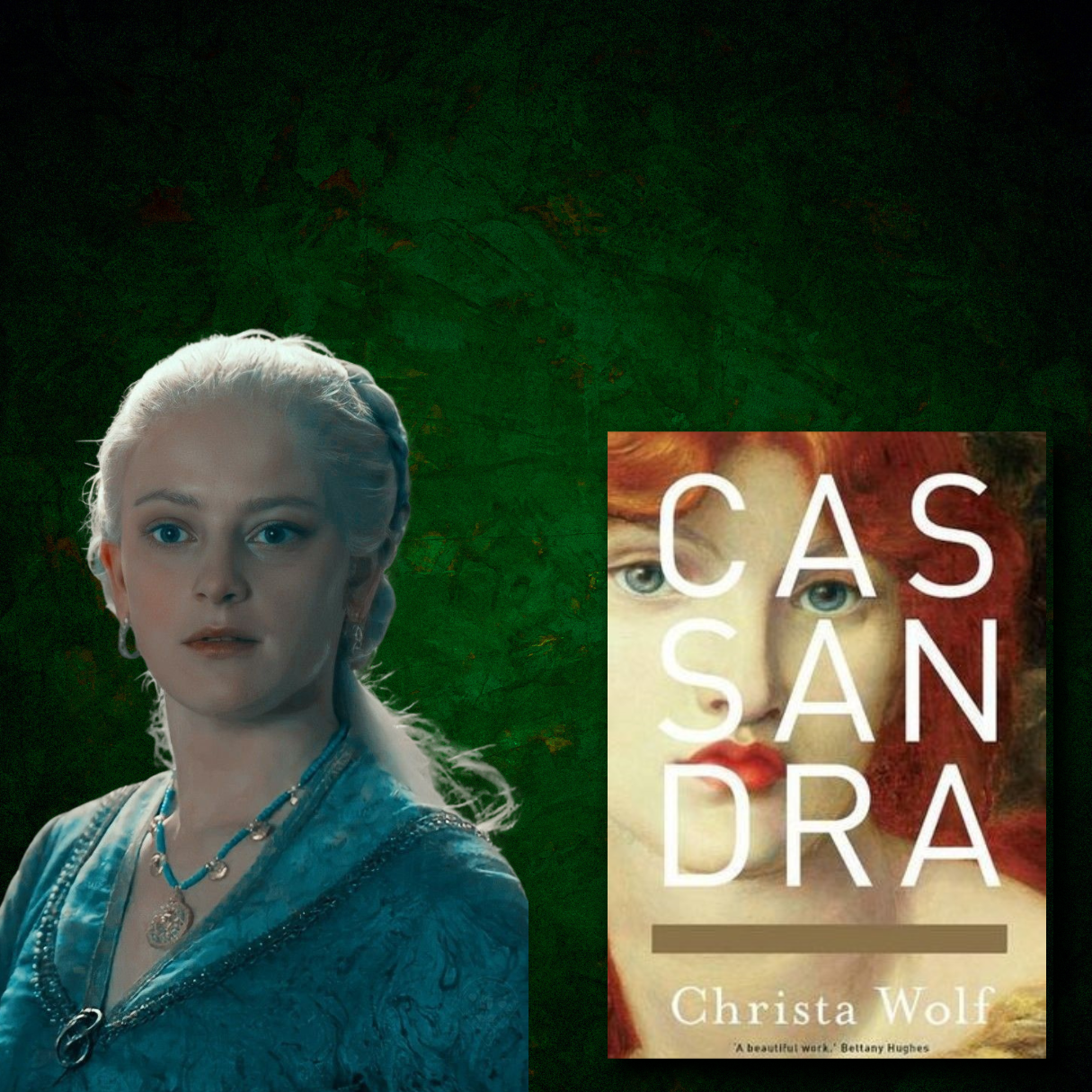
Helaena Targaryen
Cassandra by Christa Wolf
Helaena is endowed with the gift of foresight, though her prophecies are expressed in enigmatic riddles. Her cryptic visions are often dismissed as the ramblings of a madwoman around her. As the show progresses, viewers witness the repeated validation of Helaena’s prophecies, even as her family continues to disregard her warnings
In Christa Wolf’s Cassandra, the eponymous heroine experiences a similar plight. Cursed by Apollo, Cassandra is doomed to foresee the future but never be believed. She foresees the downfall of Troy and the calamities that will befall her people, yet her prophetic insights are ignored, leaving her to witness the unfolding of inevitable tragedies.
Mysaria
The Queen's Fool by Philippa Gregor
Mysaria wields considerable influence behind the scenes through her keen political acumen and strategic manipulation. She adeptly navigates a complex web of power dynamics and secrets, often using her knowledge and connections to manipulate outcomes in her favor. Despite her lack of noble lineage, Mysaria’s shrewdness enables her to become a central figure in the court’s complex politics.
In Philippa Gregory’s The Queen’s Fool, the protagonist, Hannah Green, serves as a court fool who becomes an indispensable confidante to Queen Mary I of England. Perceived as a mere entertainer, Hannah uses her role to gain access to the inner workings of the court and influence the political landscape from within. Both characters demonstrate how those who are often underestimated or occupy seemingly peripheral roles can exert significant influence in the corridors of power.
Aegon Targaryen II
The Picture of Dorian Gray by Oscar Wilde
Aegon is a character marked by his indulgence and moral ambiguity. As a prince who ascends to power through ambition and manipulation, both his own and his family’s, Aegon’s actions are often driven by a desire for personal gratification and dominance.
In Oscar Wilde’s The Picture of Dorian Gray, Dorian Gray is similarly consumed by a hedonistic pursuit of beauty and pleasure. Granted eternal youth while a portrait bears the burden of his sins, Dorian’s life spirals into a series of morally reprehensible acts. The novel explores the destructive nature of vanity and the inevitable consequences of living a life driven by selfish desires.
